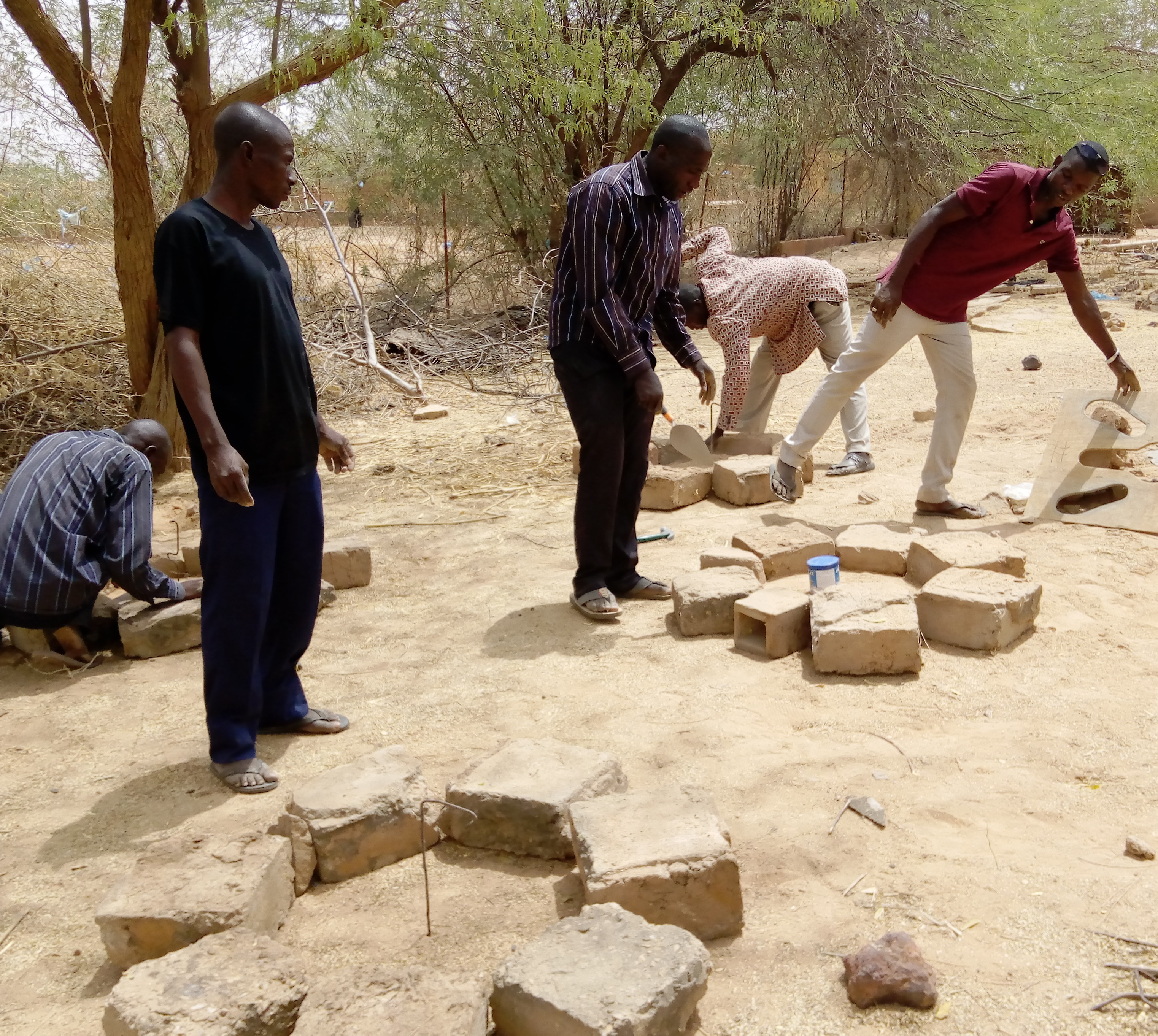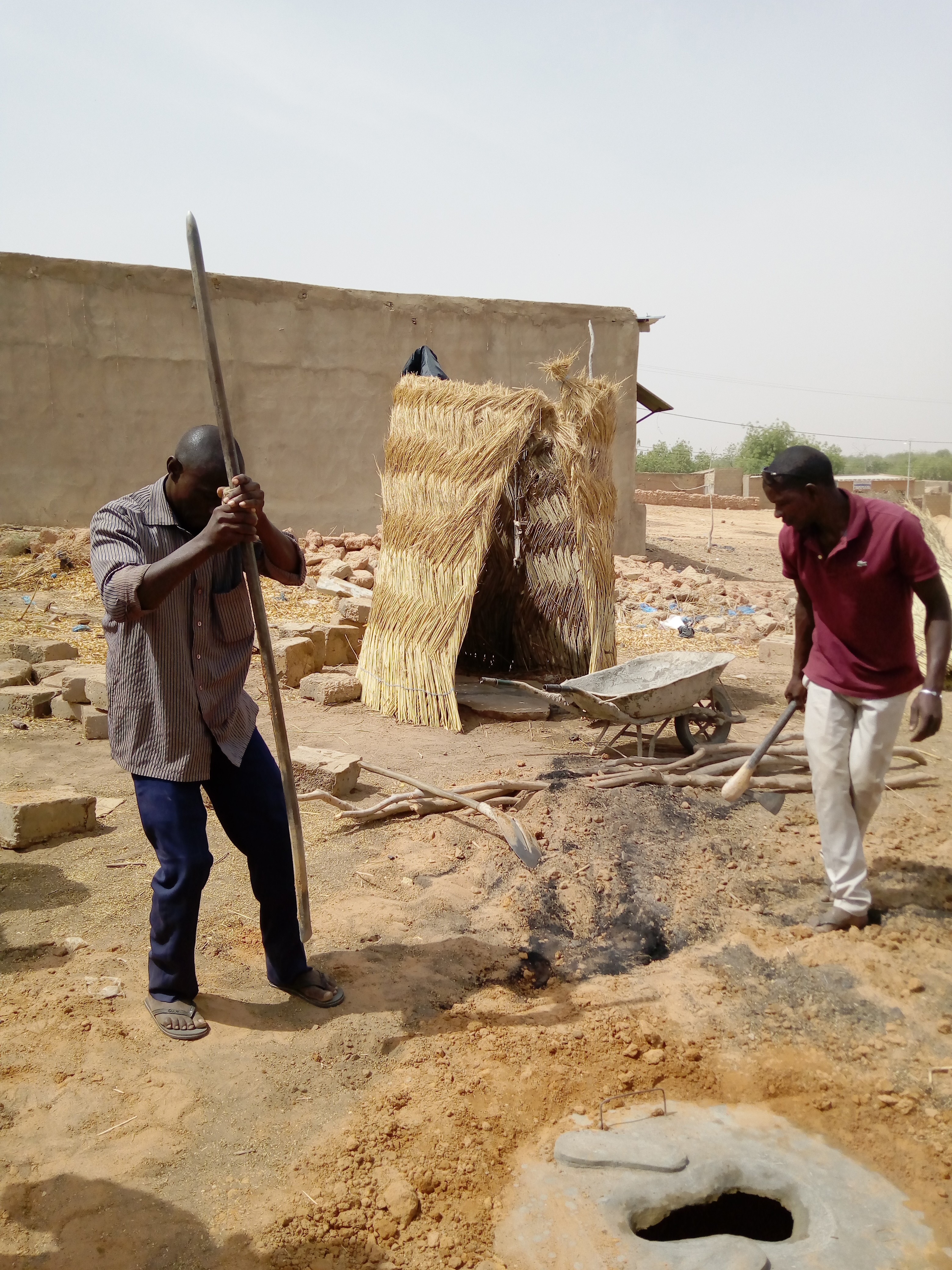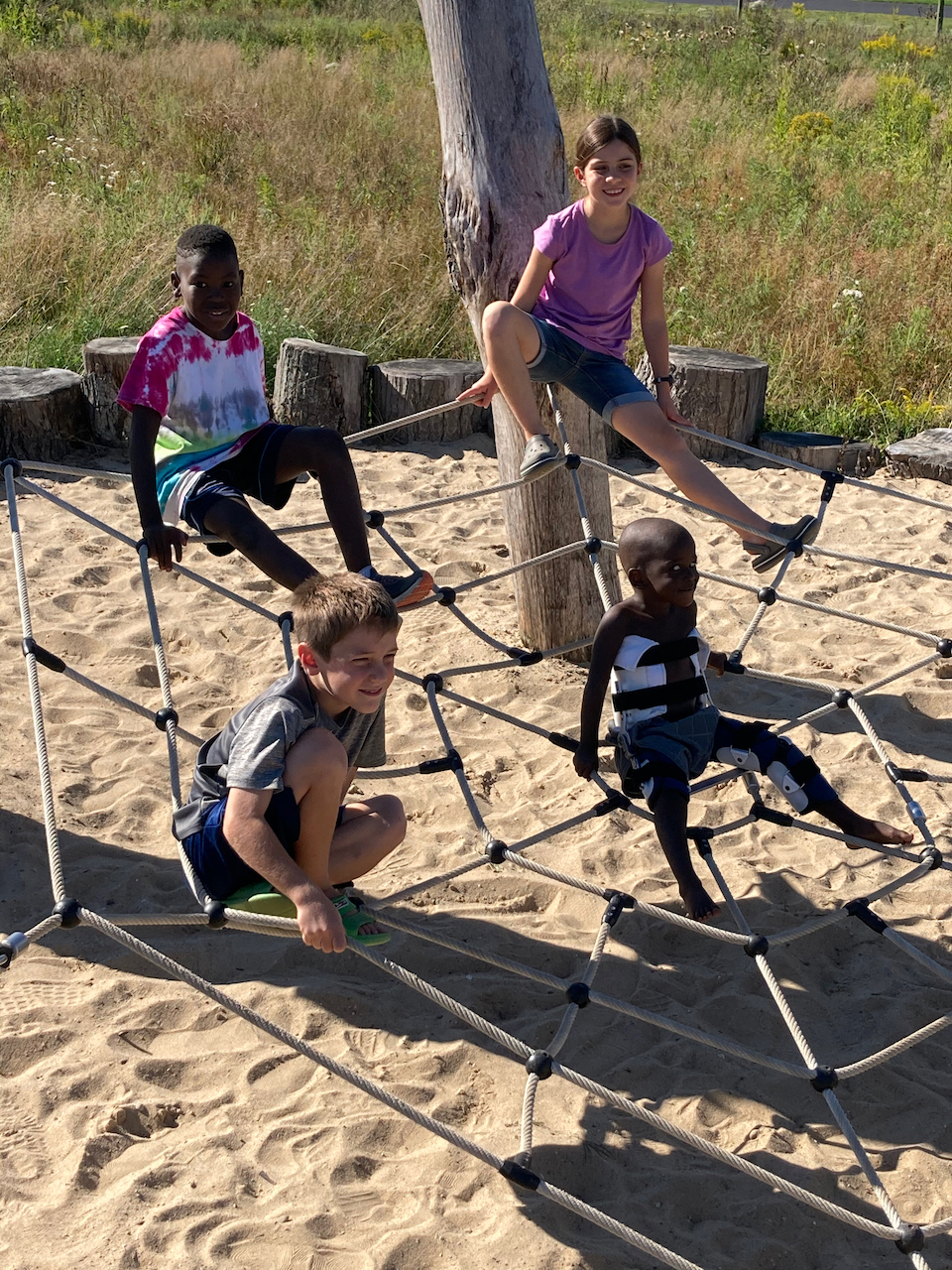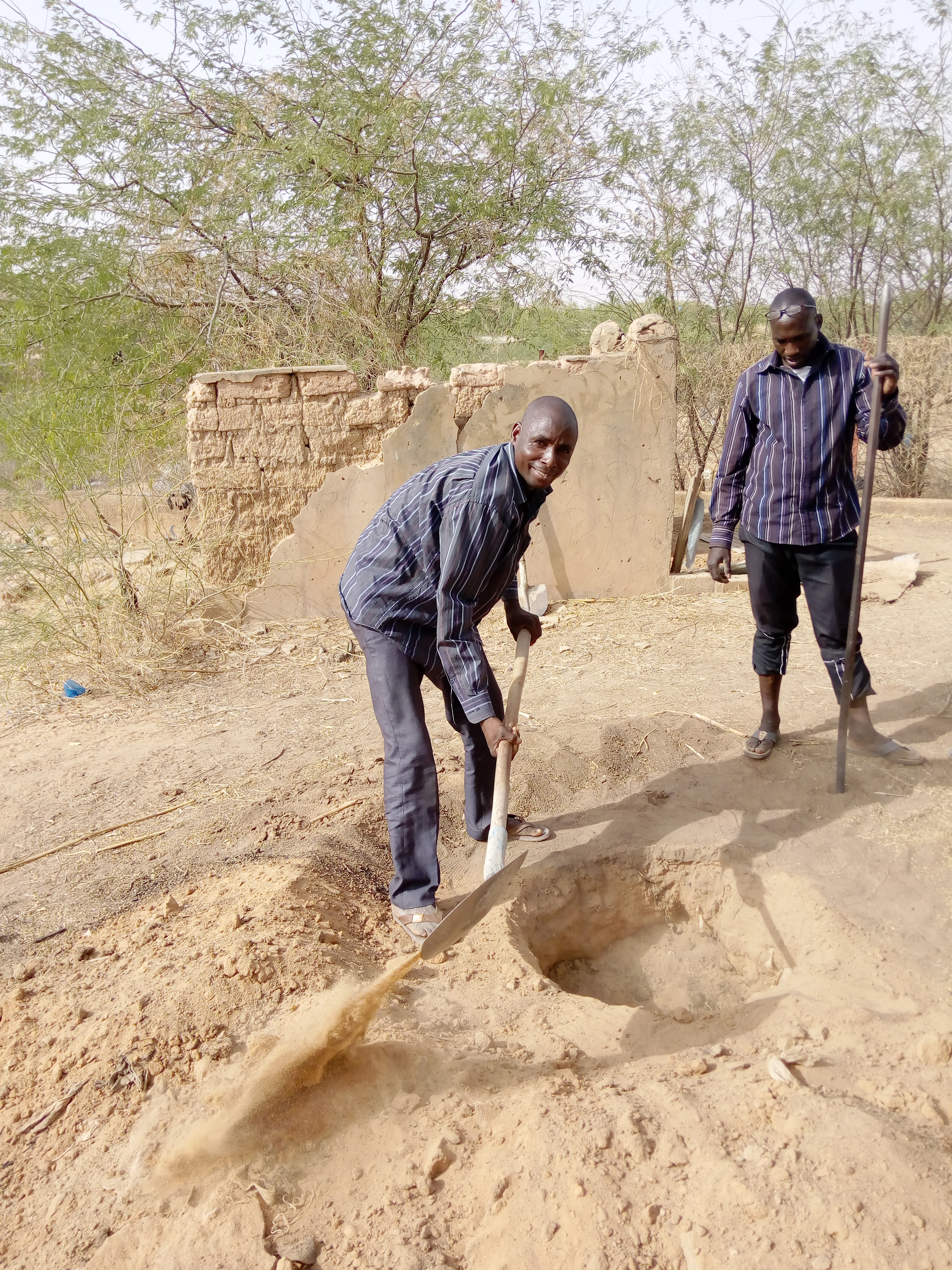A Letter from Michael and Rachel Ludwig, serving in Niger
September 2020
Write to Michael Ludwig
Write to Rachel Ludwig
Individuals: Give online to E200513 for Michael and Rachel Ludwig’s sending and support
Congregations: Give to D507575 for Michael and Rachel Ludwig’s sending and support
Churches are asked to send donations through your congregation’s normal receiving site (this is usually your presbytery).
Subscribe to our co-worker letters
Dear friends,
In a recent Community Health Evangelism (CHE) meeting with pastors in Niger, I asked, ‘How many of you have a toilet or latrine at your house?” No one raised their hand. The participants at this training all smiled because they knew where we were going with this. Everyone with a little education knows that the modern teaching includes using a toilet for sanitation. But unless you live in a big city in Niger, it’s unlikely that any of your neighbors has an actual latrine at their house. That was how the discussion time started in one of our recent CHE trainings with pastors from our mission partner, the Evangelical Church in the Republic of Niger (EERN).
Our CHE mentoring program is focused on helping each pastor develop a healthy home, and so the topic for this two-day training was how to make a simple latrine in a locally sustainable way. It was special for us because we had the chance to work in conjunction with Jim McGill, another PC(USA) mission co-worker who specializes in WaSH (Water Sanitation and Hygiene). He helped us ‘dig deep’ into how to build latrines that will motivate people to actually use them. Jim shared his experience about how education and even ‘shame campaigns’ to encourage the use of latrines both tend to fizzle out after a short time. Then people just go back to the way they’ve always done it. They describe it as going in the fields ‘behind the town,’ finding a convenient tree for cover or waiting till night when there’s more privacy.
The pastors’ eyes lit up when Jim shared that the most lasting motivation for people to use latrines is if they see some tangible economic benefit. The basic idea is this: to use the latrine as a way to generate powerful fertilizer that can grow profitable crops quickly. So the kind of latrine we trained the pastors to make is termed an ‘Arbor-loo,’ but not because it involves squatting behind a tree. Instead you use it to grow a tree!
The key element for an Arbor-loo is digging a one-meter pit, which is smaller than a normal latrine because the goal for this one is actually to fill it up quickly. A family can fill it in about six months, and then move to another spot in the yard and dig another, while planting a fruit tree over the first one. The incentive is that a fruit tree will grow fast in the great compost you’ve created and then provide nutritional or financial benefit from making a latrine!“But, are we going to get the supplies necessary to make these latrines?” said one of the pastors as soon as everyone saw the usefulness of the idea. There the issue of ‘giving out free’ rears its ugly head, since people are conditioned to expect something free at a training due to the one-size-fits-all solutions of aid groups in the country. Do you need to get something for free in order to try an idea that might help you? Sometimes, yes, you have to be very careful about what you use your energy on when you constantly live on a razors edge between having enough food for your family and coming up short.
We weren’t ready to promise all the supplies needed (around $50 a latrine), but we did give them the experience of making these latrines, so they received all the technical know-how. While some pastors dug a one-meter pit in the 100-degree temperature on a sunny afternoon, others started mixing cement, sand, and gravel in appropriate ratios. Then they had the chance to make a rough block mold for the squatting platform that goes over the pit. Resources and technology available locally are key to making the construction practical, so things like an old tin can are used for center hole in the mold. A large roughly woven basket meant for protecting trees can be used as extra support inside the pit to prevent cave-ins. Finally, the pastors dug post-holes around the pit to anchor a woven-grass mat screen. The resulting spiral has no door, but the overlapping mat creates an entrance way that does ensure privacy.
We do expect to have to help the pastors do their own latrines after the rainy season is over, when digging can be quickly undone by downpours. We’re making a plan to cover some of the more expensive pieces, like the cement. In return we are asking the pastors to do the work constructing the latrines and demonstrating how they work. Once the community is shown that this really can work as an economic venture, people will realize that it is inexpensive and beneficial and feel confident enough to try it.
The “Arbor-loos” project could go far in helping improve communities, but it needs advocates. And that’s where partnership between the PC(USA) and EERN churches is so helpful. PC(USA) World Mission has long had this commitment to the values displayed in Matthew 25, which rallies us around the work of eradicating the root causes of poverty. The EERN believes deeply that their witness to their country is expressed best when they ‘feed the hungry,’ ‘clothe the naked,’ and ‘care for the sick.’ Because of our shared interests and hand-in-hand partnership, we’re able to bring together the people, experiences, and resources of CHE and WaSH. Without your prayers and financial support, these connections wouldn’t happen, and our churches would miss such a great opportunity to witness to this Matthew 25 vision and God’s care for our lives and our communities around the globe.
We do ask for your continued support of these connections, and also that you pray for our family specifically in this time. In December, our youngest son will have his third hip surgery, this time to remove metal screws that were inserted in his hip during his other hip dysplasia surgeries. Pray for his recovery, re-learning to walk, and our travel possibilities afterward. We also continue to be lost in bureaucracy for our two boys’ U.S. citizenship applications and pray for resolution after two years of being “in-process.”
Michael and Rachel Ludwig
![]() You may freely reuse and distribute this article in its entirety for non-commercial purposes in any medium. Please include author attribution, photography credits, and a link to the original article. This work is licensed under a Creative Commons Attribution-NonCommercial-NoDeratives 4.0 International License.
You may freely reuse and distribute this article in its entirety for non-commercial purposes in any medium. Please include author attribution, photography credits, and a link to the original article. This work is licensed under a Creative Commons Attribution-NonCommercial-NoDeratives 4.0 International License.



